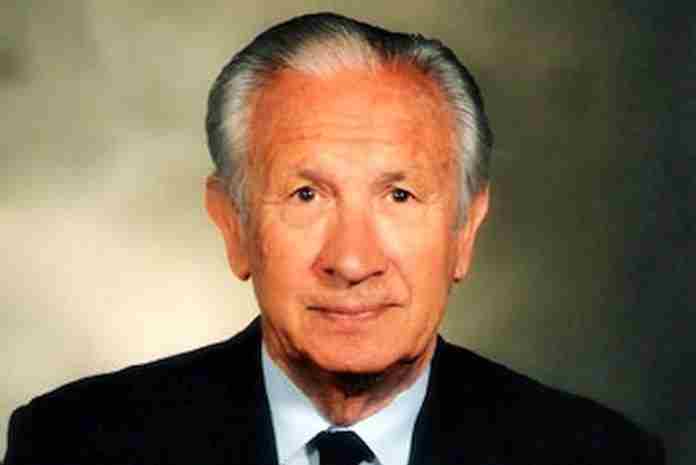News, views and noise from the non-stop, worldwide circus of Olympic sport:
● Vox Populi ● We received a lot of comments following our 29 April Lane One column on Guy Drut’s declaration that the Olympic Games must be reinvented in a post-pandemic world. A sampling:
I am in full support of the comments by Guy Drut and The Sports Examiner. The Olympic Games have become too bloated and require too much of a financial investment by the host city. It’s time to take a fresh look at the sports that have been added over the past few decades and start trimming (what is “sport climbing” anyway). The idea of staging certain sports in the same location permanently is genius, in my opinion. It’s all a TV spectacle and will not affect anything if certain competitions are in a different location. And, yes, out with all the sports that rely on subjective judging to determine winners and losers. Gymnastics can stay, however.
~ Steve Ritchie
That article will make you a popular guy in a lot of places, but it is well thought. You should list, after (1) Drut’s suggested permanent locations (like Dayton in the NCAA basketball tournament) plus those of your own using his rationale plus (2) your deletions based on your criteria (but with your 1896 exceptions included), what the program would then look like and what facilities a host city would actually have to provide. And what the reduction in athletes would be. This was really interesting.
~ Scott LeTellier
Given the issues inherent in hosting the Olympic Games, it seems to me that the issue of profitablility has superceded the issue of universality.
Given the number of countries that have had years of debt to finance the games (Greece, Montreal, probably Rio), I’ve long held the opinion that there should be a number of sites around the globe that would rotate every Olympiad.
The sites would be situated on each of the continents, and would be maintained through financing from the neighboring countries.
The example of L.A. 84 is prime, in that it use(d)(s) existing facilities, acquired corporate sponsorship, and continues to this day to contribute to the community, both athletically and culturally.
Other possible examples might be maintaining ongoing facilities in Western Europe (London), East Asia (Beijing or Tokyo), Central/South America (Rio, Mexico City), Oceania (Sydney or Melbourne).
The major areas of Africa and South Asia may bid for representation, with, of course, the stipulation that the neighboring countries contribute.
This is a way of maintaining the great number of sports that have accumulated over the years.
On a personal level, I’ve believed that many sports have no place in the Olympics at all, given the Citius, Altius, Fortius foundation.
Track & Field, Swimming, Gymnastics and the combative sports all have roots as classic. Does baseball, golf, tennis, etc., all of which are great sports in and of themselves, don’t fall into the CAF category, requiring the intense focused training of the individual sports mentioned.
I’m also of the opinion that professionalism, which killed the ancient Games, will also do the same for the modern Games. If we are to maintain team sports, shouldn’t there be a limit (maybe two games) to the number allowed? The 1980 Hockey “Miracle” will never occur again, simply because of professionalism into the games.
I realize that this is an argument that would spiral out of control under any circumstances, however, I am hoping that the points mentioned would be considered for discussion as focal points for the continuance and refreshment of the Games.
~ Ron Brumel
On our 24 April story in which World Athletics President Sebastian Coe asked for more top-level U.S. track & field meets:
Track is dead in USA. Post-high school. Dead.
No fans.
No money.
Meters no one cares or understands.
Cannot compete with entertainment-rich NBA, NFL, NCAA sports.
Track is just a hobby.
Dead.
~ Brian Theriot
Always happy to have your opinions; you can give us your view by clicking here.
● Athletics ● There was competition – of a sort – on Sunday as three of the world’s top vaulters combined for a unique event in their own backyards!
London 2012 Olympic champ Renaud Lavillenie (FRA), world-record holder Mondo Duplantis (SWE) and World Champion Sam Kendricks (USA) each vaulted in their own backyards. The goal was to clear 5.00 m (16-5) as many times as possible in 30 minutes.
Duplantis (vaulting in Lafayette, Louisiana) and Lavillenie (Clermont-Ferrand, France) both cleared 32 times and Kendricks (Oxford, Mississippi) managed 26, but was the only one to make every attempt!. The event was streamed live to several thousand fans.
“I’m done, I don’t want to take any risks,” said Lavillenie. “I’ll share the gold with Mondo.
“I was really missing the feeling I get competing. It’s crazy but even doing this in my garden, I get the same feeling I’d get at a major championships. It was very exciting and I’m very happy to be a part of it. I’m not going to do it every week, but I’m happy to do it once a year.”
Said Duplantis, “It was really fun being out there competing against those guys. I had really missed competing. I didn’t think it was going to end in a tie, but that’s sports!”
It’s hardly a substitute for a track meet, but it’s something, right? The World Athletics story noted that other such “challenges” are possible, but how many jumpers or throwers have facilities in their own backyards?
¶
The Athletics Integrity Unit has been busy, posting four more suspensions, two from Kenya and two Americans.
The Kenyans were Alex Oloitiptip (10,000 m: 27:28.74 in 2019) for a Whereabouts failure and Mikei Kiprotich Mutai (Marathon: 2:09:18 in 2012) for doping. That brings the total number of Kenyans on the ineligible list to 60.
The Americans were both hit for Whereabouts failures: star sprinters Deajah Stevens (11.00/22.09 ‘17) and Gabby Thomas (11.10 ‘19 & 22.19 ‘18).
Thomas’s agent told LetsRun.com that she missed one test in 2019 and the situation on the second is confused. But Thomas sent a note to Reuters declaring she did not miss the third:
“I am confident that at least one of these missed tests is not valid and that I will be completely cleared. Phone tracking data and multiple witnesses will conclusively show that I was at the exact location I established in my whereabouts and that the doping control officer simply failed to locate me and failed to follow proper protocol.
“Athletes are held to an incredibly high standard and the doping control organizations are supposed to be held to similarly high standards.”
¶
One of the sport’s biggest-ever stars, Carl Lewis, tweeted Monday that his favorite sport is in trouble:
“It’s time we have an honest conversation abut the future of our sport. The present financial model is unsustainable. The global pandemic has changed the future of sport forever. We need to discuss the federations and the number of athletes competing.”
● Badminton ● USA Badminton announced the end of a U.S. Olympic & Paralympic Committee move for decertification in view of its actions on some abuse cases.
The federation statement included “Given the challenges USAB was facing as an organization last year, we understand why the USOPC believed it was necessary to bring this case forward. While it took longer than all of us hoped, we worked hard to address the issues that prompted the USOPC’s intervention and firmly believe we are better equipped to meet similar challenges in the future.”
● Football ● It’s easy to understand the shocked response of U.S. Women’s National Team players like Megan Rapinoe and Alex Morgan to the summary judgement against most of their sex-discrimination lawsuit against the U.S. Soccer Federation last Friday.
After all, all they heard from their own attorneys and the news media was how powerful their case was and how far-reaching their inevitable victory would be for their cause of equal rights.
That was before they read Friday’s 32-page opinion by U.S. District Judge R. Gary Klausner, which granted summary judgement against their primary assertions of pay discrimination and field surfaces.
In order to understand the true meaning of the decision, one has to appreciate how strong the holding was against them. A holding for summary judgement says essentially to the losing party: you have no case.
That’s what Klausner’s decision says in a slow, methodical march through the facts and then through the applicable law. The opinion is thorough, clean and precise, which bodes well for being upheld in the inevitable appeal to the U.S. Court of Appeals for the Ninth Circuit.
Among the key items in the decision:
(1) In the negotiations for what became the 2016-21 collective bargaining agreement, Klausner notes that a U.S. Soccer proposal in May 2016 “included the same per diem, camp fee (…), ticket-revenue-share agreement, and friendly-appearance fee as the [Men’s National Team Collective Bargaining Agreement].”
But the Women’s National Team negotiators than asked for many additional items and within a month, a U.S. Soccer reply noted nine added requests for (1) minimum annual compensation and minimum number of games per year, (2) automatic increased in compensation of the Men’s National Team compensation is raised, (3) a guaranteed number of players contracted each calendar year, (4) injury guarantees, (5) pregnancy guarantees, (6) severance, (7) post-termination health insurance, (8) retirement benefits and (9) significant financial support of a professional league. The Men’s National Team’s collective bargaining agreement has none of these provisions.
(2) Offers went back and forth into 2017, including three Women’s National Team proposals within 33 days and a collective bargaining agreement was finally concluded for 2017-21 on 4 April 2017. It contained a mix of provisions, including most of the added requests, at varying levels of compensation. Klausner’s opinion noted that the Women’s National Team Player’s Association “has never asked USSF to reopen the 2017 CBA to renegotiate its terms.”
He further states that for the women to prevail on an Equal Pay Act claim, they must show that they were paid less than the Men’s National Team for the same work. The evidence cited showed that payments to the Women’s National Team from 2015-19 was $24.5 million (in 111 games) vs. $18 million for the men (in 87 games), and on a per-game basis, was $220,747 for the women vs. $212,639 for the men. This did not include the payments to the women’s team for playing in the National Women’s Soccer League. Game over.
In fact, Klausner further noted that “Defendant has submitted evidence that had MNT players been paid under the WNT’s 2017 CBA, they too would have made more than they did under their own CBA.” The opinion goes on to find – and this is the key clause – that:
“This approach – merely comparing what each team would have made under the other team’s CBA – is untenable in this case because it ignores the reality that the MNT and WNT bargained for different agreements which reflect different preferences, and that the WNT explicitly rejected the terms they now seek to retroactively impose on themselves.”
(3) The second major cause of action was under Title VII of the Civil Rights Act of 1964, for being paid less and for unequal working conditions. The less-pay issue had already been disposed of. On working conditions, the claims were on playing more games on artificial turf than the men played, and on commercial flights vs. charters.
On the field surfaces, the Court held that U.S. Soccer had a legitimate, non-discriminatory reason for playing some women’s games on artificial turf in 2015 and 2017. In these cases, U.S. Soccer contended that it elected to play the games on turf because of financial reasons and the opinion noted that the claimants “failed to raise a triable issue as to pretext.”
On the charter vs. commercial flights, Klausner found that there is a triable issue and this and a smaller claim for medical and other support services were approved for trial, scheduled for June.
Comment: The obvious next step is for the two sides to negotiate an extension of the current labor agreement beyond 2021. Interim U.S. Soccer President Cindy Parlow Cone, herself a former Women’s National Team star, has signaled as much. Whether the WNT side is willing is not yet apparent.
● Swimming ● The International Federation for aquatics, FINA, finally announced the new dates for what would have been the 2021 World Championships in Fukuoka, Japan.
After some discussion about holding the event right after the 2021 Olympic Games, sanity prevailed and the new dates are 13-29 May, 2022.
This is not the earliest that the FINA Worlds have been held; the three championships held in Australia were much earlier, from 3-13 January 1991, 8-17 January in 1998 and 18 March-1 April in 2007. However, for the northern hemisphere, this is the earliest event, well ahead of the 12-28 July dates for 2003 and 2019.
The early dates might end up being another point of friction with the International Swimming League, whose plans for 2020-21 have already been impacted by the postponement of the 2020 Tokyo Olympic Games. But that’s in the future.
● World Beach Games ● The modest success of the inaugural World Beach Games on Qatar in 2019 led the Association of National Olympic Committees to open bids for the second edition in 2021 and a third in 2023.
With the postponement of the Tokyo Olympic Games to 2021 and the Beijing Winter Games coming in 2022, ANOC announced Friday that it was postponing the second edition of the World Beach Games to 2023.
● At the BuZZer ● Carl Lewis, named the 1988 Olympic gold medalist in the 100 m after the infamous disqualification of Canada’s Ben Johnson for doping wants to you to be clear about his own record. On Twitter on Monday:
Heino van Zyl (RSA):
“Are you 100% sure you’ve never used any banned substance not even in off season. If you lie the truth will be with your coach and that answer you can take to the grave.”
Lewis replied:
“Look, it is clear and proven that I never took performance enhancing drugs. I see you have 114 followers. I’m sure you hope my answer will get you to 200. Goodnight.”


























